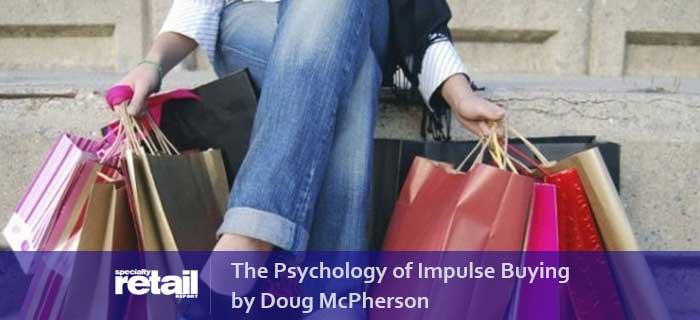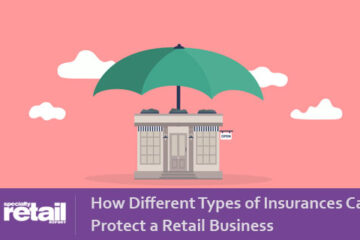In the culture of consumption today, impulsive buying is a prevalent behaviour. It refers to making impulsive, irrational purchases without considering the products’ repercussions.
While it may initially seem harmless, impulse buying is often linked to stress and discontentment. Individuals might improve their decision-making and mental wellness by knowing the psychology influencing impulse buying.
Understanding The Impulse Buying
Many factors that affect our decision-making process lead to impulse buying. Understanding these driving forces may help us understand why we make impulsive purchases. Impulse buyers tend to have specific characteristics.
They often buy items that improve their public image as they are more outgoing, status-conscious, and image-conscious than others. Additionally, impulsive buyers usually experience more anxiety and difficulty managing their emotions, making it harder to overcome the desire to spend impulsively.
They might also use buying to find momentary delight in trying to uplift their moods. And last, while making an impulse purchase, people usually don’t consider the impacts of their choices and instead focus solely on having that product.
Motivating Factors Behind Impulse Buying
Lots of factors influence impulsive buying. Impulsive buying is more common among people who shop for pleasure. The rush and delight one gets from imagining having something to enjoy make one desire to keep experiencing that pleasure by carrying out purchases.
Vicarious ownership, which builds a link between the customer and the product, is another driver. It becomes more difficult to avoid buying when people are attached to a product as their thoughts start to behave as if they own it.
Proximity to the item, having a chance to buy it straight away, or social comparison to other product users can all encourage the establishment of this attachment.
The Interplay of Motivational Factors
Let’s examine a hypothetical scenario to show how these motivating factors interplay. An impulsive buyer who is upset believes that having something costly can make them worthy and happy.
They get motivated to shop by this perception.
They come upon something in a shopping location that draws their attention.
Then they look closer at it, perhaps even think of a friend who already owns it, and they promptly start imagining how wonderful it would be to have it.
They fall into the desire and make impulsive buys without considering the price or utility.
This results in guilt, which brings unhappiness, which is precisely what the impulsive buyer wants to avoid.
How To Control The Impulse Buying
Having control over this habit depends on becoming aware of the root cause of impulse purchases. Although occasional impulsive purchases are acceptable, excessive impulse buying may result in debt and discontentment.
Manage your impulse buying habits by being aware of the red flags. You might have an impulsive buying tendency if you often spend money without giving any reason for your purchases or if you suddenly develop the need to buy something after using it or finding it is immediately accessible. Ultimately, this will not help you save much!
Furthermore, you may tell if a purchase is impulsive by looking at whether it was scheduled or because of an unanticipated urge. You can become an informed customer and live happier by consciously limiting the need to buy and comprehending that something won’t give pleasure or contentment.
Though controlling and minimizing impulsive buying habits might be challenging, there are a few strategies people can go about it.
What Can You Do?
Set a shopping list: Before going to the store or purchasing something online, develop a list of what items you need. If there isn’t a legitimate reason for deviating from this list, don’t.
Please set a budget: Define how much you can spend and strictly stick to it. You can do this by using your monthly budget or even how much you spend on every shopping trip. You can avoid impulsive shopping and make wiser purchases by setting financial boundaries.
Put off gratification: When prompted for an impulse purchase, try putting off the purchase for some time. Take a step back, stop, and consider whether the purchase is necessary or just a spur-of-the-moment urge. Buying can be less impulsive if you provide enough time to evaluate the benefits and drawbacks.
Keep triggers at a distance: Find out which situations, settings, or online stores lead you to make impulsive purchases. It may be ads on social media platforms, particular retailers, or sales promotions.
Reduce exposure to these triggers as much as possible or develop strategies that reduce their effect on you.
Buy with awareness: Think critically about what you buy and evaluate their necessity before you buy them. Analyze if the purchase is by your long-term objectives, gives real value to how you live, and is economically feasible to pay for without compromising other vital expenditures. Limiting impulsive buying behaviour can be achieved by thinking carefully before purchasing.
Seek assistance: If it’s hard for you to control your impulsive buying habits, think about approaching relatives, close friends, or support groups that might provide advice and encouragement. They can offer support, convey their tricks for reigning impulse buying, and support you in keeping up your financial goals.
Analyzing Consumer Behavior And Impulsive Buying
Consumer behaviour research has provided insight into the subject of impulse buying. Understanding customer behaviour is essential when creating effective marketing strategies because marketplaces have become increasingly competitive, and customers get access to an extensive range of services and interesting products.
Arguments and advertising significantly impact consumer purchasing plans. Impulsive behaviour is also affected by emotional state, brand loyalty, and sensations. However, the level of uncertainty spurred on by things like the most recent pandemic has shifted consumer behaviour, leaving them more structured and informed.
In a nutshell, impulsive purchasing is a complex behaviour affected by various external and internal factors. A combination of excitement and anxiety can spark impulsive decisions.
Retailers capitalize on these emotions by using plenty of tactics that encourage impulse purchases. On the other hand, the same buying tendencies may eventually lead to financial stress, guilt, and an overall lack of fulfilment.

Patricia Norins is a strategic storyteller in the retail industry. With nearly 30 years of experience, she expertly combines innovative marketing strategies and industry knowledge to effectively convey brand stories. Coming from a fourth-generation retailer family, Patricia has a deep-rooted passion for retail real estate and has pioneered concepts such as adding retail to common areas and creating specialty leasing programs. In addition to her professional achievements, she actively mentors and contributes to the community, including co-teaching MBA classes.





